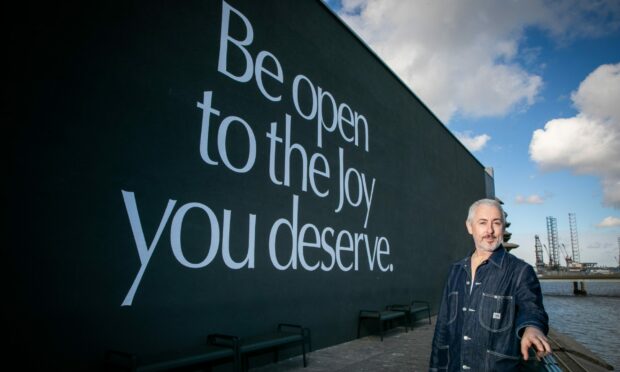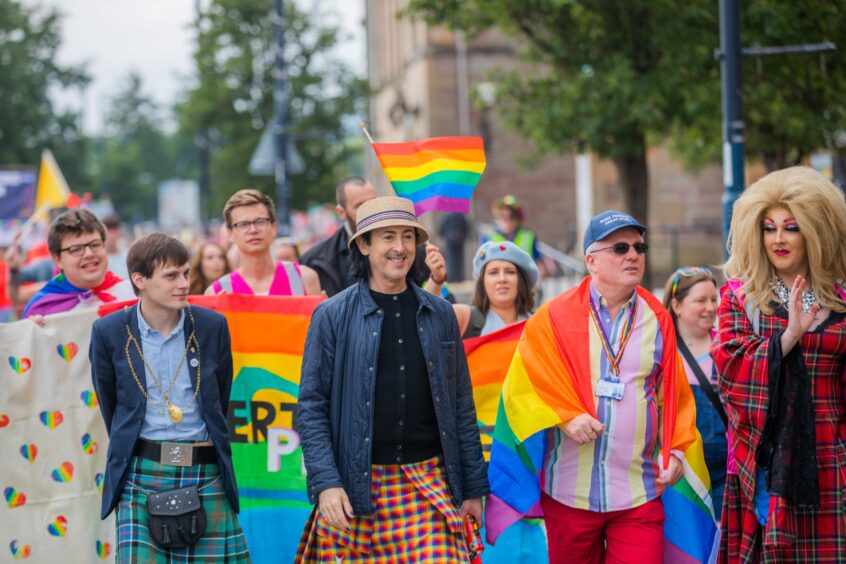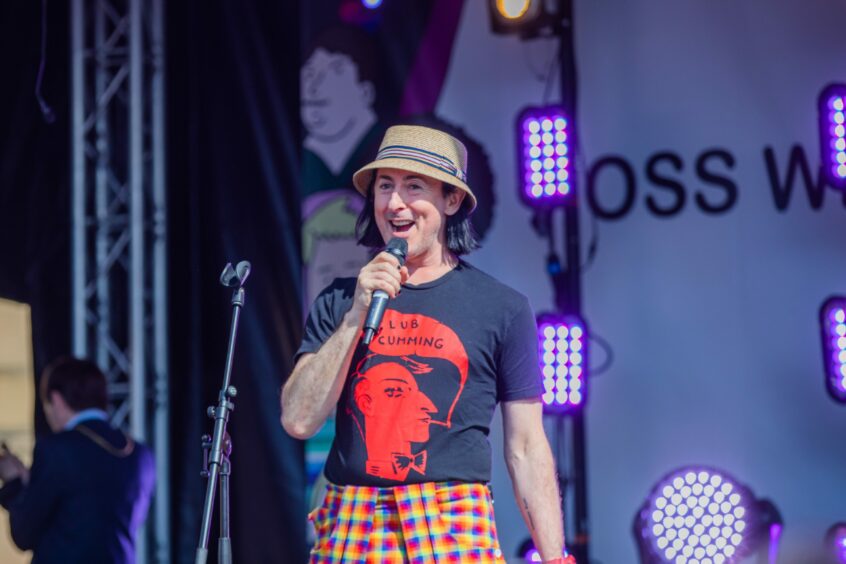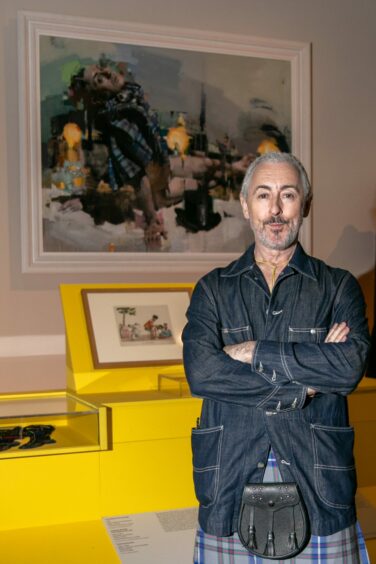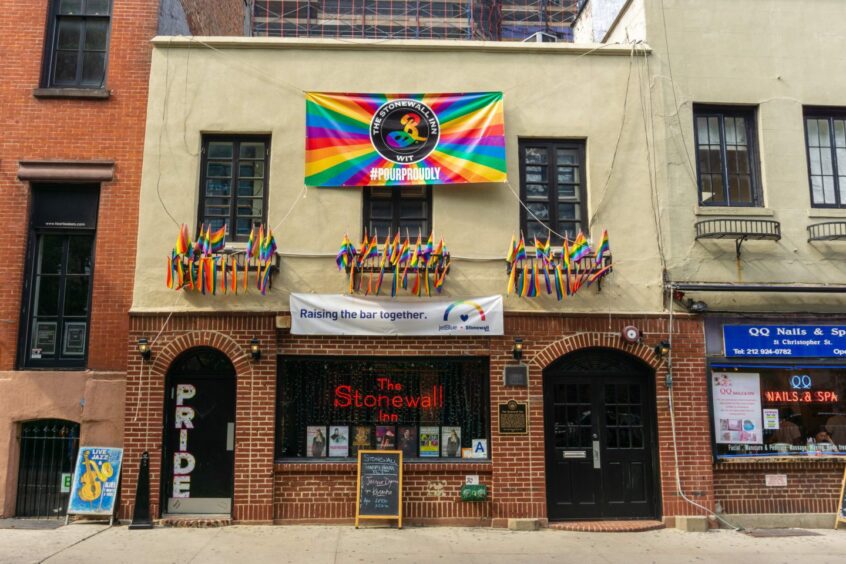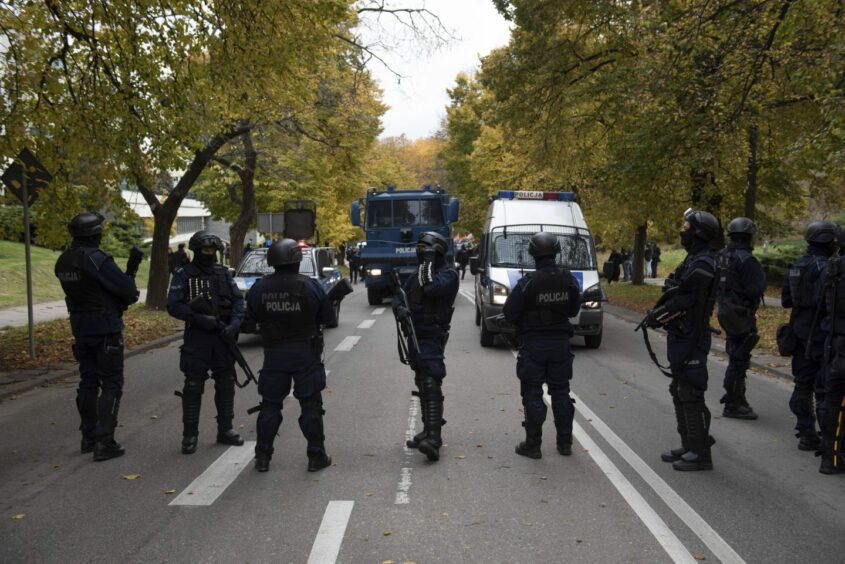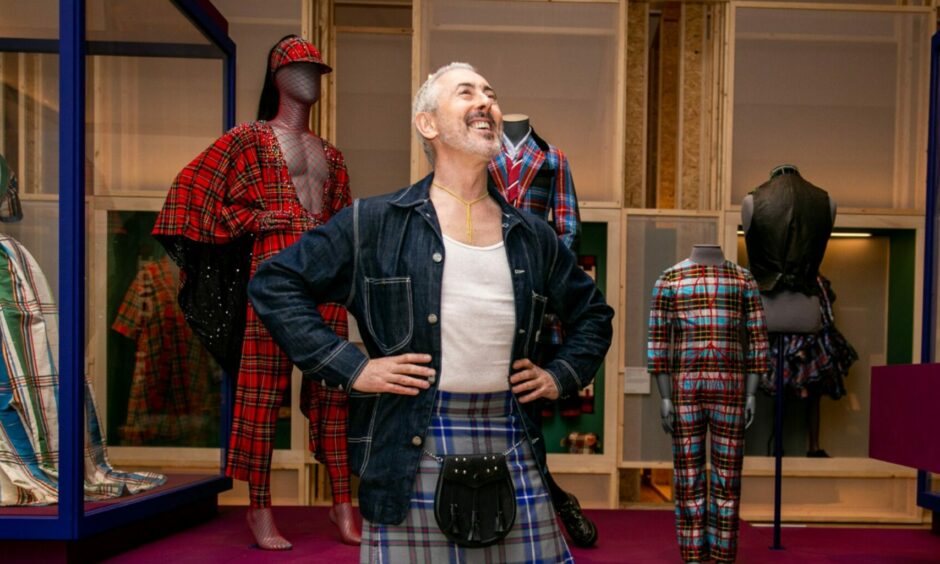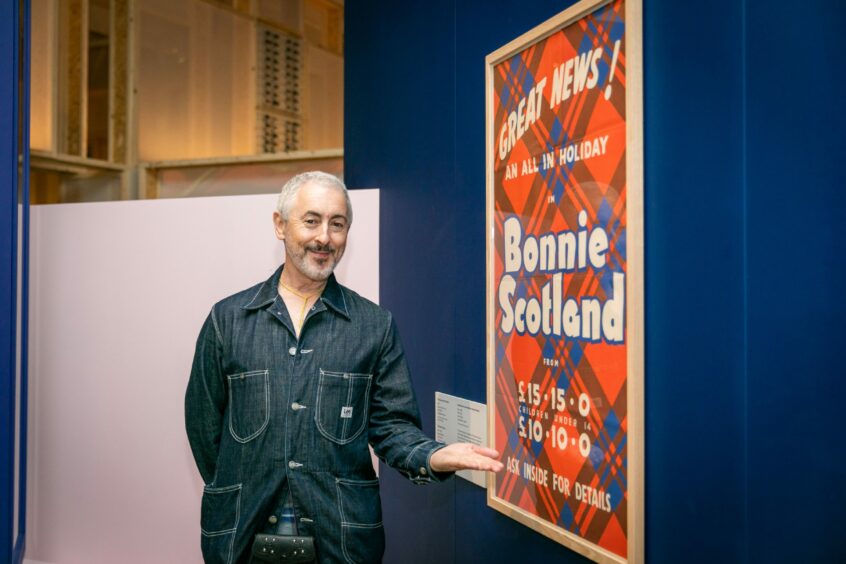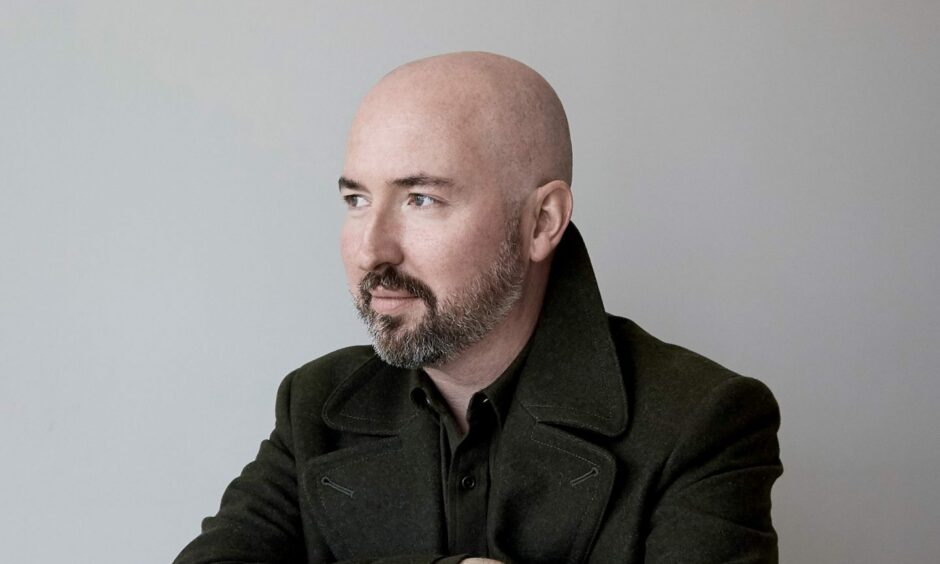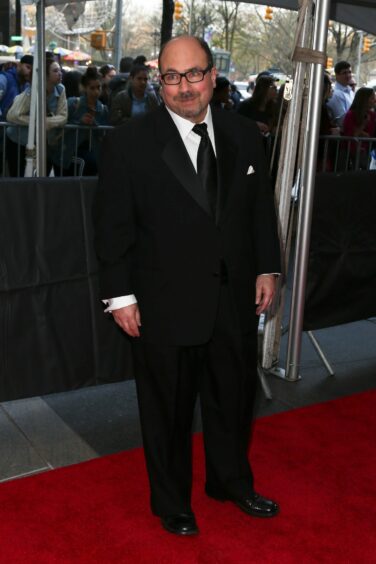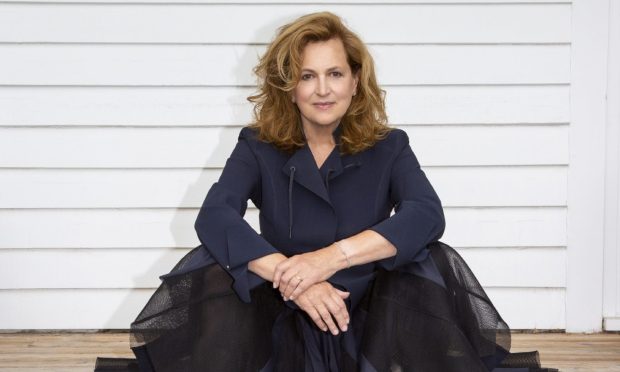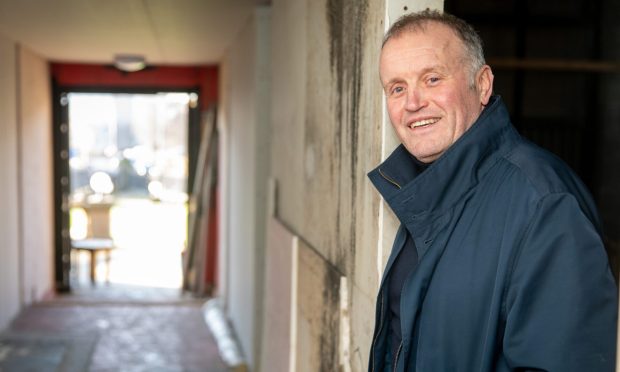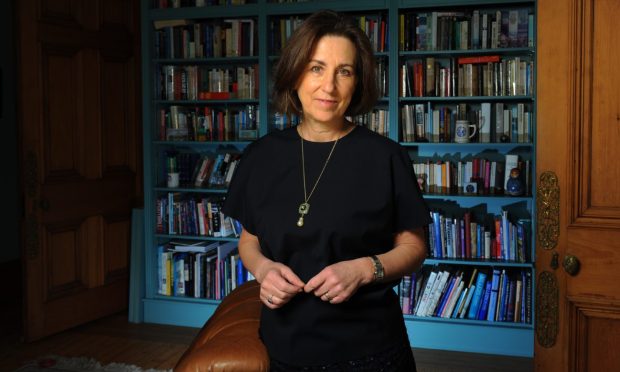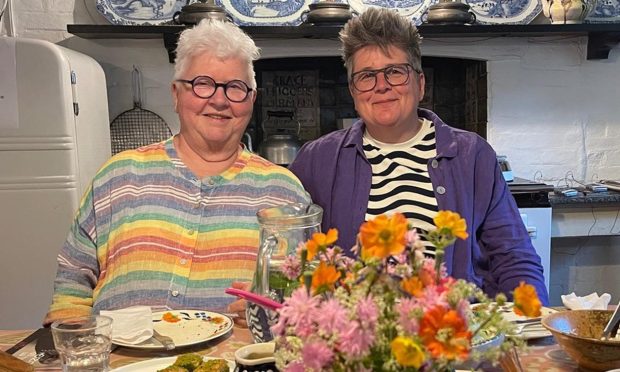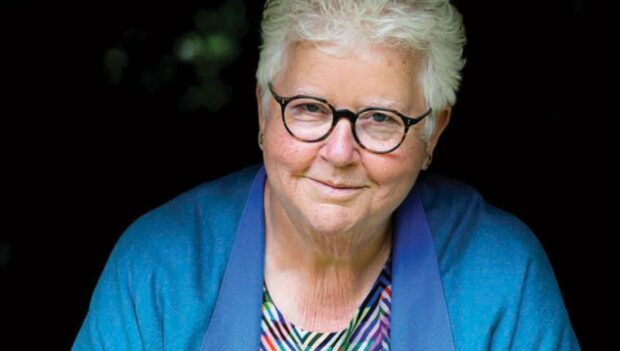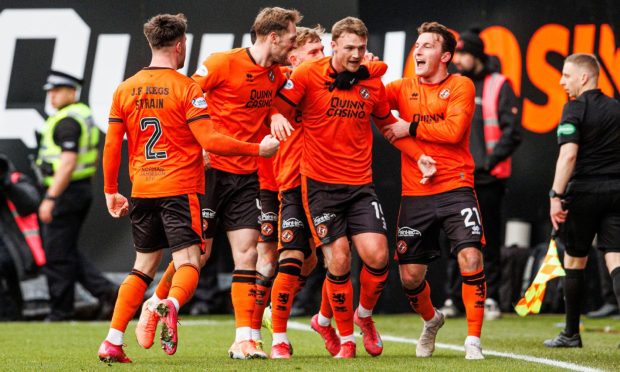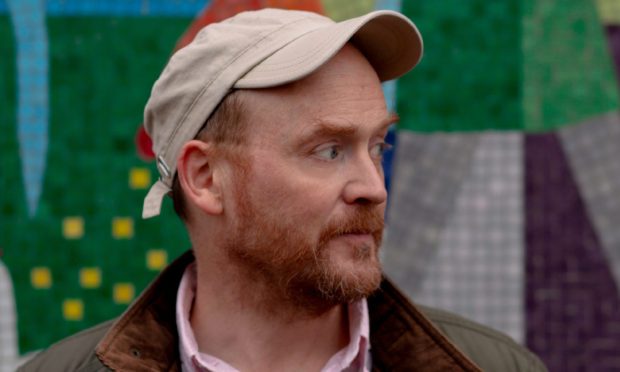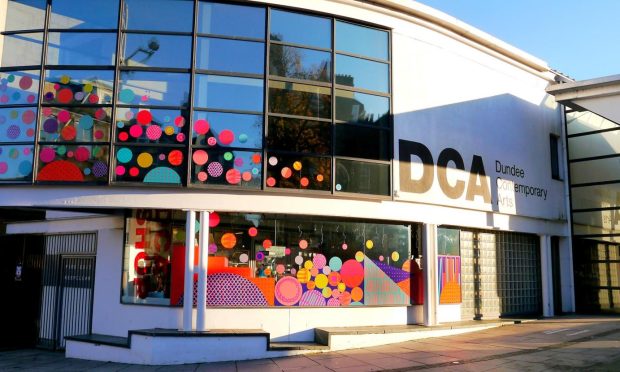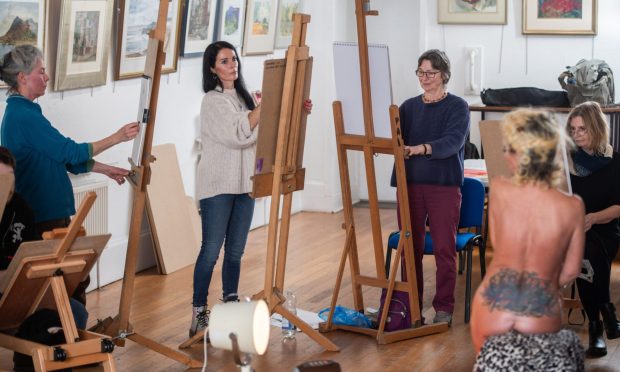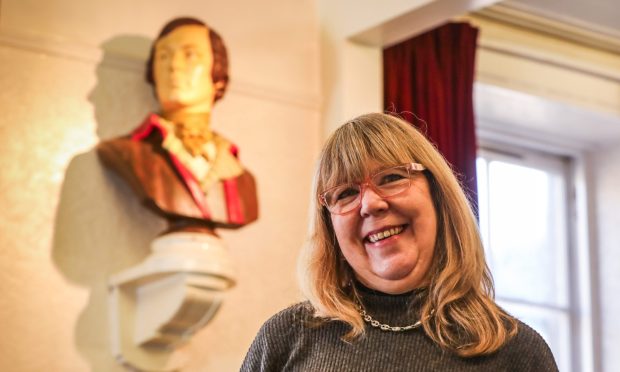For Alan Cumming, Pride month is complicated – but being queer never was.
The Perthshire-born actor has been hailed as a queer icon since the New Yorker dubbed him a “frolicky pansexual sex symbol for the new millennium” in the late ’90s.
And since then, Cumming, 58, has fully embraced that role, openly discussing his bisexuality and marriage to artist Grant Shaffer in the media, creating the LGBTQ+ inclusive Club Cumming in New York City, and even acting as grand marshal in last year’s Perthshire Pride.
In his self-proclaimed “natty” style and “fun” spirit, he embodies the very idea that it’s OK to be different.
But unlike many queer kids growing up in rural Scotland in the 1980s – his childhood took place on a country estate in Carnoustie – Cumming insists he never felt that his difference was something he had to overcome.
“I’ve never felt shame about sexuality in the way that a lot of people do,” he explains when we meet in Dundee ahead of Pride month.
The Traitors reality TV show host – famous for his array of tartan suits – is here to give a talk at the V&A’s new Tartan exhibition. He sports a purple ‘Yes’ tartan kilt and denim shirt, combining ancient and modern in a way that is quintessentially ‘Alan Cumming’ – and full of Scottish pride.
“I mean I knew it was weird to be different, I knew not everybody thought it was great,” he laughs. “But I felt OK about it, and I think that’s the most important thing.
“I think I’m really lucky because of that. And having a platform, I’m very much an advocate for reminding people it’s OK to be different.”
Cumming: Pride is more party than protest
For many Scottish people in LGBTQ+ community, Pride Month – which takes place every summer in June – is an opportunity to celebrate that difference.
And although Cumming insists that the increase in Pride events across the country is “a great thing for the new Scotland”, he admits he has “mixed feelings” about Pride in general.
“I wish we didn’t have to have Pride,” he states bluntly. “But the reason we have things like Pride is because our society doesn’t allow some people to feel good about themselves all the time.
“So I’m all for it, but I sort of feel that it used to be much more of a protest, as it started off. And now it’s become sort of a party.”
Indeed, Pride has its roots in the fight-the-power activism of the 1970s. The first ever Pride marches took place in New York, Los Angeles and Chicago on June 28 1970.
They fell on the anniversary of the infamous Stonewall Riots in New York, which took place in 1969 due to police harassment at the Stonewall Inn – a bar which catered to New York’s gay, lesbian and transgender community.
It took another quarter of a century for Pride to reach Scotland, with the first major Pride event held in Edinburgh in 1995.
Nowadays there are Pride events everywhere from Shetland to Dumfries – and they are celebrations, not riots. And while some people take this as a sign that the fight for queer equality is over, Cumming warns that such a sense of security is false.
“The thing about being queer is that if you look at history, you have to be vigilant,” he says. “Because the rights and the respect that you get can be taken away. They have been taken away, repeatedly over time.”
He’s not wrong. America has often been centred in recent conversations around ‘stripping rights’ from the LGBTQ+ community, as several “anti-trans” bills were proposed across Arkansas, Tennessee, Montana and 34 other US states in 2021.
But in the same year, the EU launched legal action against Poland and Hungary for new laws which introduced “anti-LGBT zones” across Polish cities and banned depictions of LGBTQ+ characters in books and TV for under-18s in Hungary.
And Russia has seen some of the world’s most dramatic push-pull politics around gay rights in the past century.
After the Russian Soviet Republic decriminalised male homosexuality back in 1917, it was recriminalised by Joseph Stalin in 1933. It was not decriminalised again until 1993 – sixty years later, a lifetime for many gay Russians.
Just last year, under Putin’s rule, a law criminalising the distribution of media depicting ‘non-traditional’ relationships to minors was extended to all ages, meaning no pro-LGBTQ+ stories can be created and shared.
This solemn side of the fight for LGBTQ+ rights is a far cry from the joy, glitter and rainbow paraphernalia of Scottish events, and that solemnity takes over Cumming’s chirpy demeanour as he speaks.
“I feel like we should use Pride as a way to celebrate who we are,” he says carefully.
“But also to remind people that there’s still a long way to go, and it’s still difficult for many people to live their lives the way they want to live.”
‘Anything could happen’ at Club Cumming
For Cumming, it’s important that his native Scotland is a nation which not only permits Pride, but works to be a world leader in pushing forward LGBTQ+ rights.
Amid the ongoing controversy and debates around Gender Reform, he wants to see leaders elected “who are going to make it easier for trans people to be who they are”, and who will rail against the idea that “them getting rights is somehow going to take rights away from another group”.
In the meantime, he implements his ideology of radical kindness and inclusion in his own little kingdom, Club Cumming.
The New York City cabaret bar has been running for the past five years, and has been frequented by big names including Paul McCartney and Vanessa Williams.
Deemed a “quasi-queer” establishment, Club Cumming isn’t a “gay bar” as such. It is, Cumming explains, a space that’s safe for all.
“On one hand, it’s just a cabaret bar,” he says demurely. “But I feel it’s more than that.
“Our motto – which I made up – is ‘all ages, all genders, all colours, all sexualities, kindness is all, and anything could happen’.
“And I feel that’s sort of an extension of my spirit. It’s really important for me that everyone remembers that.”
And although the bar has housed stars such as comedian Cat Cohen, whose 2022 Netflix special ‘The Twist? She’s Gorgeous’ launched her to international stardom, Cumming insists the club’s biggest success story is community it has created.
“One of our go-go dancers is called Lily, and she first go-go danced when she was called Juan,” he smiles. “So in the course of her time there, she’s transitioned. And I find things like that really amazing.
“People there are always supportive and it’s only been like five years, but there’s great stories coming out of it already.”
Alan Cumming refuses to ‘act his age’
Looking around the Tartan exhibition – which includes a portrait of Cumming himself – he remarks on the “rebellious” nature of the often “traditional” fabric. It’s a textile which seems to speak to his own sensibility.
In his new stage show, Alan Cumming Is Not Acting His Age, the performer is railing against not just gender and sexuality norms, but also against expectations put on people as they grow older.
“I’m not allowing other people to dictate how I live my life, and that’s what I think ‘acting your age’ is,” he pronounces with a regal sweep of his hand.
“We’re told ‘this is how you should behave at this time in your life’ and ‘this is what you should wear and how you should have your hair’.
“We’re told: Your principle exercise must now be golf!” A faux-disgusted grimace brings his famously mischievous side to the fore. “All those things are mapped out for us, and I just think: Why? Who decides?”
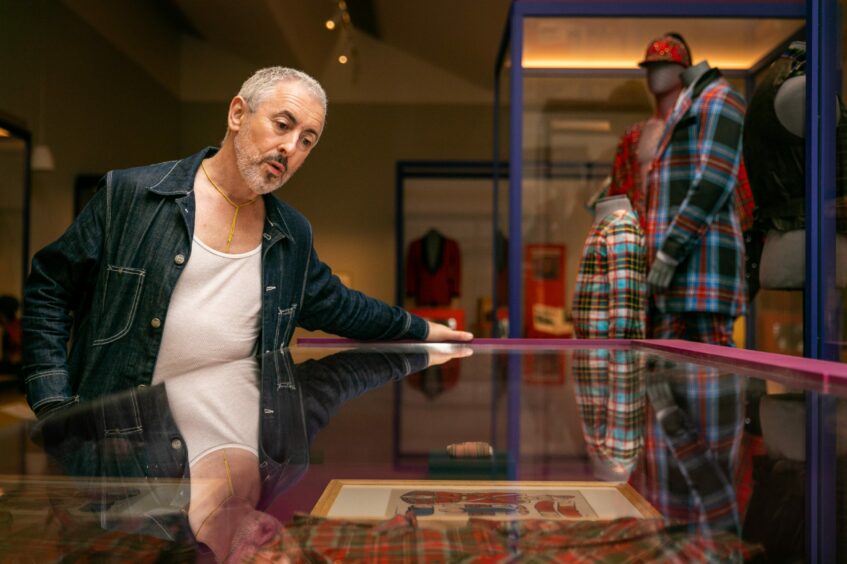
Of course, even the most modern-minded among us can be a sucker for the classics.
And although he’s been living mainly in upstate New York with his husband and their dogs for the past few years, Cumming admits there are some home comforts he can only get in Scotland.
“Chips and mushy peas!” he explains when I ask him for his homeland essentials. “It’s my favourite.
“It used to be white pudding before I realise they’re not vegan,” he says wistfully. “I still yearn for it. I’m lobbying Tunnock’s to make a vegan Tunnock’s Tea Cake, I said I’d be their ambassador.
“People always say to me ‘do you know Oreos are vegan?’ and I say ‘yes I do, and I still would never put one inside my body’.”
Dripping with sarcasm, he adds: “Chemicals are vegan, hooray! You can be a drug addict and vegan – it’s great!”
For Cumming, veganism ties into his environmentalism. Outside of his LGBTQ+ activism, he is a huge advocate for the fight against climate change, and reckons Scotland needs to be on the front lines.
“We’ve got to stop just saying ‘the climate crisis is really important’ and actually elect politicians who do more radical things to reverse it,” he says ardently.
“And I think there’s this argument of ‘well why should we do it if such and such country isn’t doing it’ and that’s not the way to think about it. We’ve got to actually set an example.”
Do stars like Cumming get starstruck?
There’s an eye-up, chin-out star power about Cumming that boldly barges through any stereotypes of the humble Scot or so-called ‘cultural cringe’.
Taking in the Tartan show, he observes that “it represents the way that Scotland is more outward-looking and confident now”.
And as he blithely recounts house parties with the likes of Emma Stone and literary salons with fellow Scot and Booker Prize-winner Douglas Stuart, it’s hard to imagine the wee boy from Angus who was told “London is a maybe, the US is out of the question” when he began pursuing performance.

But despite the A-list company he keeps, Cumming reveals he is still starstruck by one very specific type of celebrity.
“Do you know what Mr Moviephone is?” he says, suddenly animated. “I once was on a talk show in America and he was on it.
“It’s more about people like that, that I feel are in your life and you don’t think of them as real people, and then you meet them.
“I once met Craig from [classified ads website] Craigslist,” he adds, grinning.
“And I f****** lost it! I was with Anne Hathaway,” – another casual A-list name drop – “and we were both like: ‘It’s Craig, from Craigslist! Oh my God! Can we have a photo?’
“And Craig actually turned round and said to us: ‘You should get out more.’”
